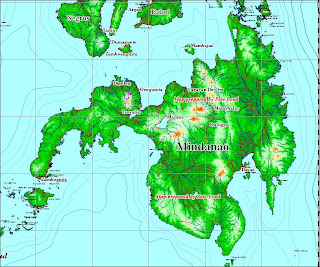
For Immediate Release: 01/08/07
Amnesty International today welcomed last night's unanimous vote by the UN Security Council to send a newly strengthened African Union-United Nations force to Darfur in Sudan but warned that the force must be deployed urgently, resourced effectively and be given the full support of the Sudanese Government.
"Hundreds of thousands have died because of the conflict in Darfur and more than two million people have been driven from their homes. The truth is the people of Darfur are living in the midst of a massive humanitarian and human rights crisis. They can wait no longer for protection: it must be delivered immediately, effectively and with a full mandate to protect civilians from further violence," said Amnesty International's Secretary General Irene Khan
Yesterday's adoption by the UN Security Council of resolution 1769 gives some long awaited hope to the millions of Darfuris. But it is now essential that UN member states provide the resources necessary to swiftly deploy an effective force with a strong human rights component. This must include the capacity and authority to monitor and investigate human rights violations, including all cases of rape and other forms of sexual violence, and to report publicly on all human rights abuses.
Deployed in a region awash with arms, the United Nations must ensure the forces can oversee the disarmament and demobilization of government supported Janjawid militia. The new resolution only allows the force to monitor "whether any arms or related material are present in Darfur" and urgently needs to be strengthened.
Amnesty International also urges the UN Security Council to ensure that the current arms embargo is effectively enforced.
"Given the Sudanese Government's past record of obstructing such deployments, we urge the Government to facilitate the rapid deployment of the new force," said Irene Khan "The people of Darfur have been offered too many words and too many resolutions. Now is the time for effective action."
Amnesty International today welcomed last night's unanimous vote by the UN Security Council to send a newly strengthened African Union-United Nations force to Darfur in Sudan but warned that the force must be deployed urgently, resourced effectively and be given the full support of the Sudanese Government.
"Hundreds of thousands have died because of the conflict in Darfur and more than two million people have been driven from their homes. The truth is the people of Darfur are living in the midst of a massive humanitarian and human rights crisis. They can wait no longer for protection: it must be delivered immediately, effectively and with a full mandate to protect civilians from further violence," said Amnesty International's Secretary General Irene Khan
Yesterday's adoption by the UN Security Council of resolution 1769 gives some long awaited hope to the millions of Darfuris. But it is now essential that UN member states provide the resources necessary to swiftly deploy an effective force with a strong human rights component. This must include the capacity and authority to monitor and investigate human rights violations, including all cases of rape and other forms of sexual violence, and to report publicly on all human rights abuses.
Deployed in a region awash with arms, the United Nations must ensure the forces can oversee the disarmament and demobilization of government supported Janjawid militia. The new resolution only allows the force to monitor "whether any arms or related material are present in Darfur" and urgently needs to be strengthened.
Amnesty International also urges the UN Security Council to ensure that the current arms embargo is effectively enforced.
"Given the Sudanese Government's past record of obstructing such deployments, we urge the Government to facilitate the rapid deployment of the new force," said Irene Khan "The people of Darfur have been offered too many words and too many resolutions. Now is the time for effective action."
A NEWS ARTICLE BY: GLOBE FOR DARFUR












